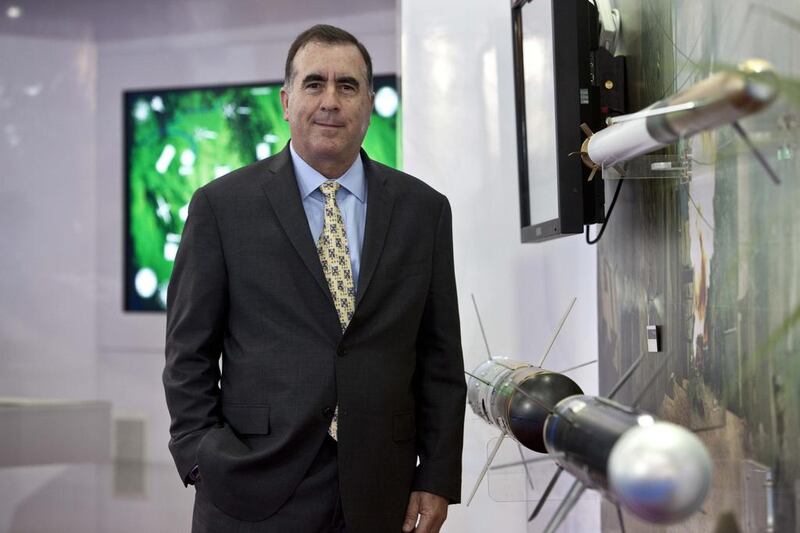DUBAI // Emirati engineers and staff from the Armed Forces have helped to develop a laser guidance system for rockets that could be sold to international customers including the US army.
The team from Emirates Advanced Investment worked on the Talon project in Arizona with the makers, Raytheon, the global defence contractor.
The UAE’s strategic defence investment company, Tawazun, will put Raytheon on contract to supply the system to the Armed Forces after negotiations conclude this week.
Raytheon will also maintain full integration of the Talon system into the Armed Forces’ existing rocket system and provide training for personnel.
The deal, announced at the Dubai Airshow on Tuesday, is significant for the UAE because it achieves the aim of technology and knowledge transfer.
“They’ve been working on it for a couple of years,” said Greg Ohannessian, an analyst at the Institute for Near East and Gulf Military Analysis.
“They are learning how to integrate better and their two primary offset goals are exportability and Emiratisation.
“You already have the Emiratisation, so that’s already home-grown technology capabilities.”
Darryl Kreitman, Raytheon’s director for Talon, said there were many opportunities around the region for this kind of system.
“We’re talking to a lot of people,” he said. “There’s a big draw here, in Asia and possibly with the US army.
“Being aligned from a hardware perspective and having the same kinds of weapons really makes it more effective should you have to go to combat.”
Talon fits on to unguided rockets suitable for helicopters. “It’s a lower-cost, digital, semi-active laser guidance and control kit that integrates directly to the front of legacy 2.75 inch Hydra-70 unguided rockets,” said Mr Kreitman.
“It was co-developed with the UAE Armed Forces and we’re very proud of that partnership.
“We’re very excited because it is a basic validation of our product and of the capability. The UAE is such an important partner so we’re feeling pretty good about that.”
Mr Kreitman said Raytheon established a strong relationship with the team from Emirates Advanced Investment in Arizona.
“They helped design the technical transformation of the guidance of the rocket,” he said. “We established great bonds personally, culturally and from a learning perspective.”
Although the full details have not yet been determined, Raytheon is meeting Tawazun’s project officer on Wednesday to produce a full plan by the end of the week.
The major asset of the guided rocket, which carries a 10-pound warhead, is precision.
“It’s what you would call an area weapon so if you have a broad target, you would send these unguided rockets out,” Mr Kreitman said.
“Some of them will fly off one way and some of them will fly straight but what our product does is, we put a laser guidance kit [on the rocket] and the aircraft basically shines a laser spot on its target and the rocket will be guided to it.”
He said this meant that one or two very precise rockets could do the job of up to 30 non-guided.
“So that guidance kit was built to adapt to the current unguided rocket that the US army and most of the world uses,” Mr Kreitman said.
“Precision is key. If you want to take out a higher-value target that maybe is in a proximity to a non-combat target, you can do that with more assurance that you are going to hit the target you intend.
“If you use an area weapon, you may have casualties or property damage that you did not intend to have and that’s the most important thing about precision, because you’ll hit what you aim for.”
The kit is mainly used in helicopters such as the Apache and the Kiowa.
“But we believe there will be a requirement to go on to land vehicles and small, fast attack ships,” Mr Kreitman said.
cmalek@thenational.ae






